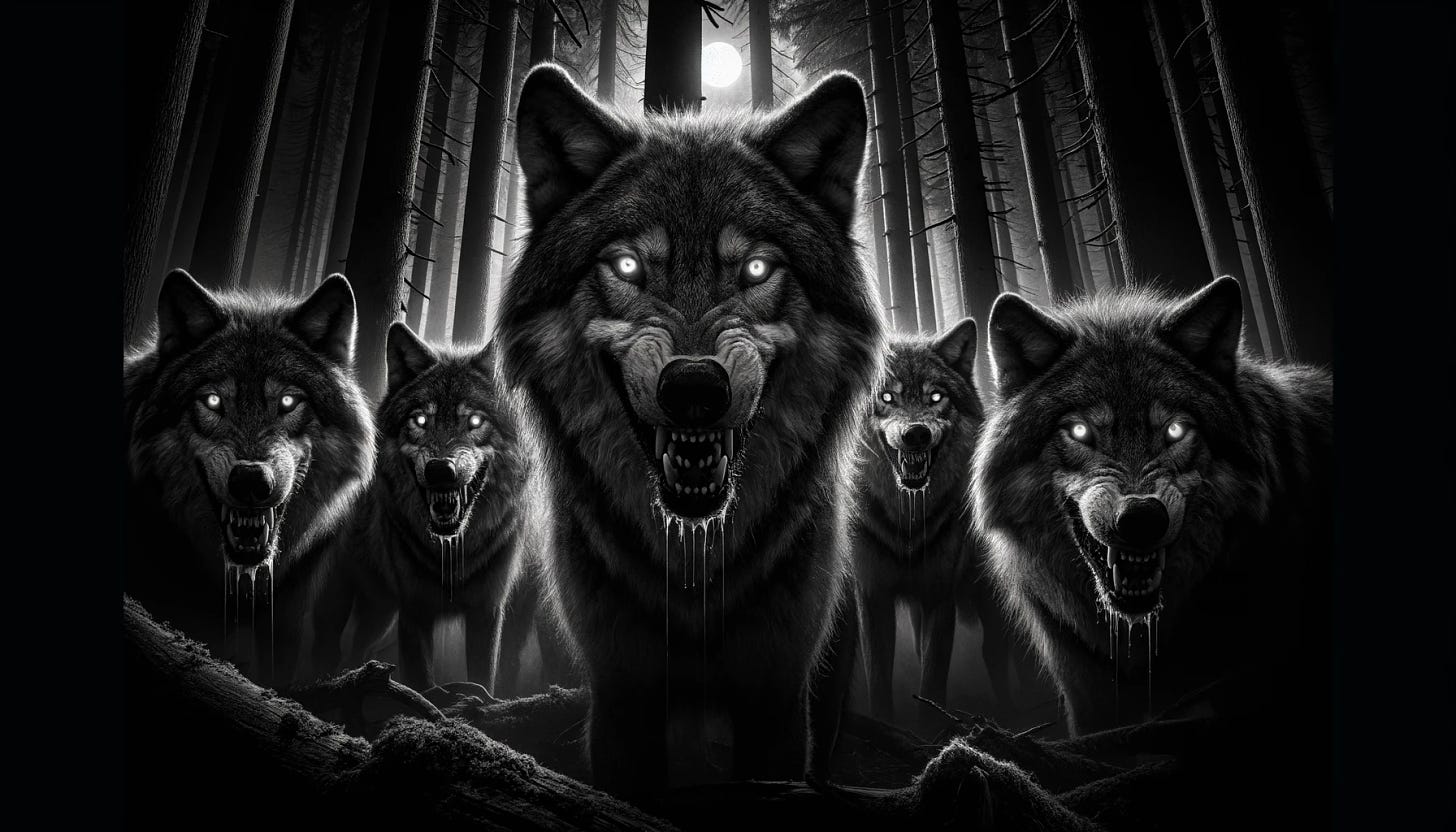Twilight of the timber wolves
We will come to miss journalists, and probably sooner than you think
A pack of timber wolves moves silent through the frozen forest. A short distance away, a deer struggles with a broken hind leg. The alpha catches the scent, and the pack follows his lead. Loping towards the doomed deer, they soon close the distance.
The first wolf lunges, jaws clamping on a haunch. The deer, eyes rolling in terror, kicks out wildly. It is no use, however, and there is no escape. The pack swarms, ripping and tearing at the poor animal. In a flash of teeth and fur, all that is left to see is a mutilated carcass in the white snow.
I’ve often analogised journalists to timber wolves. Like the unsentimental Canis lycaon they hunt in packs, target down the weak and the ailing, wear them down, trick them, corner them and, once their teeth are set in, refuse to let go. They have the power to destroy the lives of ordinary human beings and are truly merciless.
It’s not a flattering image. I’m sure some journos might object. But people often don’t think of the media in particular flattering terms.
Don’t get me wrong, we all like it when the pack sets itself on the prey we revile. But we always feel differently when the jaws are locked onto people or causes we support. And there’s nothing quite so traumatising as being the person trying to fight the pack off when it’s coming after you.
But if you take timber wolves out of an environment that needs them, what happens?
Without the wolves to keep them in check, deer numbers swell. They eat more than the land can sustain, stripping the trees of bark and devastating plant life and animal in the area. This leads to soil erosion. That’s what happened in the 1920s after predator removal programs cleared all wolves from Yellowstone park.
Starvation, disease, large-scale die-offs. This is what happens when a once vigorous system is reduced to a few dominant species with power to remake the landscape.
So it is with the loss of journalists, even in its most ugly forms. People with influence lose their fear and become emboldened. Small corruption spread unseen. This eventually leads to bigger corruptions as tolerance sets in.
You don’t have to like journalists to appreciate what they do. Not everything that is good is noble and elevated. You don’t have to buy the ostentatious pieties about the importance of the work to recognise the actual importance of the work.
Keep reading with a 7-day free trial
Subscribe to The Blue Review w/ Liam Hehir to keep reading this post and get 7 days of free access to the full post archives.





